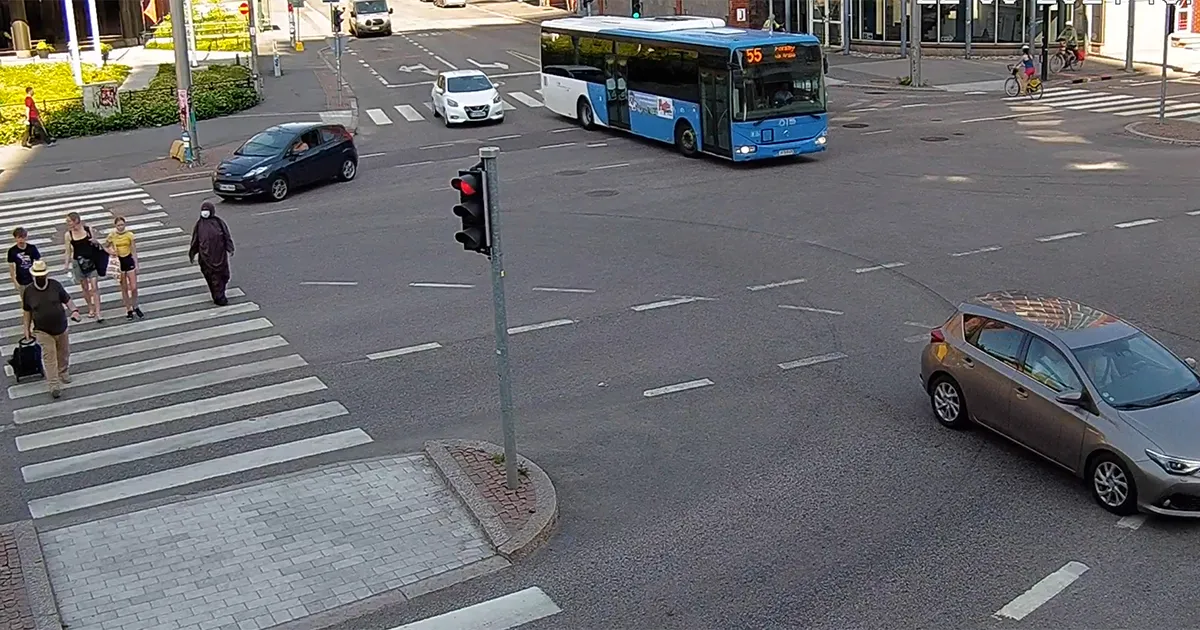New research by UK communications technology specialist BT and Frost & Sullivan finds that new urban mobility models such as ride-sharing, smart parking technologies and ride-on-demand could reduce the amount of cars needed on urban roads globally by up to 20 million vehicles per year in 2025, offering huge sustainability benefits and an improved experience for travellers.
The research, Environmentally Sustainable Innovation in Automotive Manufacturing and Urban Mobility, suggests that consumer trends t
June 29, 2016
Read time: 3 mins
New research by UK communications technology specialist 1974 BT and 2097 Frost & Sullivan finds that new urban mobility models such as ride-sharing, smart parking technologies and ride-on-demand could reduce the amount of cars needed on urban roads globally by up to 20 million vehicles per year in 2025, offering huge sustainability benefits and an improved experience for travellers.
The research, Environmentally Sustainable Innovation in Automotive Manufacturing and Urban Mobility, suggests that consumer trends towards ‘on demand’ access rather than product ownership is prompting car manufacturers to consider ride-on-demand business models. When combined with the integration of smart vehicles and smart roads and cities, all connected, these business models will lead to fewer and more efficient journeys, reducing journeys in private cars overall by 360 billion kilometres per year within the next decade.
According to the research, these developments stand to reduce carbon dioxide (CO2) emissions by 56 megatonnes per year in 2025, an amount equivalent to more than half the yearly emissions from transport in the UK. A further reduction of 121 megatonnes of CO2 equivalent emissions could be achieved by automotive companies due to the reduction of the global car output by 20 million vehicles per year.
The challenge to car manufacturers isn’t limited to reducing pollution, says the report. Changing needs and habits of a young, always-on generation increasingly open to using Mobility as a Service (MaaS), and less likely to own a car, pose a challenge to traditional automotive companies.
Hubertus von Roenne, vice president global industry practices, BT says the findings show that IoT solutions will transform the entire industry. Traditional car manufacturers are rethinking their business models and will become personal mobility service providers.
According to Martyn Briggs, industry principal, Frost & Sullivan, ICT solutions are enabling service providers to overcome some of the challenges inherent in urban mobility, whilst improving the user experience and encouraging more sustainable travel. New mobility business models can achieve exactly this, he says.
With technology enabling a new way to approach urban mobility, a paradigm shift from the current ‘predict and provide’ of transportation to a ‘sense and respond’ will be introduced, using historical analytics and real-time information to deliver mobility services on-demand.
“The logic of our analysis was to reveal both the potential impacts and benefits of new mobility business models. We quantified the potential reduction in embodied carbon from vehicle manufacturing with the future reduced volume of vehicles required,” Briggs continues.
The research, Environmentally Sustainable Innovation in Automotive Manufacturing and Urban Mobility, suggests that consumer trends towards ‘on demand’ access rather than product ownership is prompting car manufacturers to consider ride-on-demand business models. When combined with the integration of smart vehicles and smart roads and cities, all connected, these business models will lead to fewer and more efficient journeys, reducing journeys in private cars overall by 360 billion kilometres per year within the next decade.
According to the research, these developments stand to reduce carbon dioxide (CO2) emissions by 56 megatonnes per year in 2025, an amount equivalent to more than half the yearly emissions from transport in the UK. A further reduction of 121 megatonnes of CO2 equivalent emissions could be achieved by automotive companies due to the reduction of the global car output by 20 million vehicles per year.
The challenge to car manufacturers isn’t limited to reducing pollution, says the report. Changing needs and habits of a young, always-on generation increasingly open to using Mobility as a Service (MaaS), and less likely to own a car, pose a challenge to traditional automotive companies.
Hubertus von Roenne, vice president global industry practices, BT says the findings show that IoT solutions will transform the entire industry. Traditional car manufacturers are rethinking their business models and will become personal mobility service providers.
According to Martyn Briggs, industry principal, Frost & Sullivan, ICT solutions are enabling service providers to overcome some of the challenges inherent in urban mobility, whilst improving the user experience and encouraging more sustainable travel. New mobility business models can achieve exactly this, he says.
With technology enabling a new way to approach urban mobility, a paradigm shift from the current ‘predict and provide’ of transportation to a ‘sense and respond’ will be introduced, using historical analytics and real-time information to deliver mobility services on-demand.
“The logic of our analysis was to reveal both the potential impacts and benefits of new mobility business models. We quantified the potential reduction in embodied carbon from vehicle manufacturing with the future reduced volume of vehicles required,” Briggs continues.








